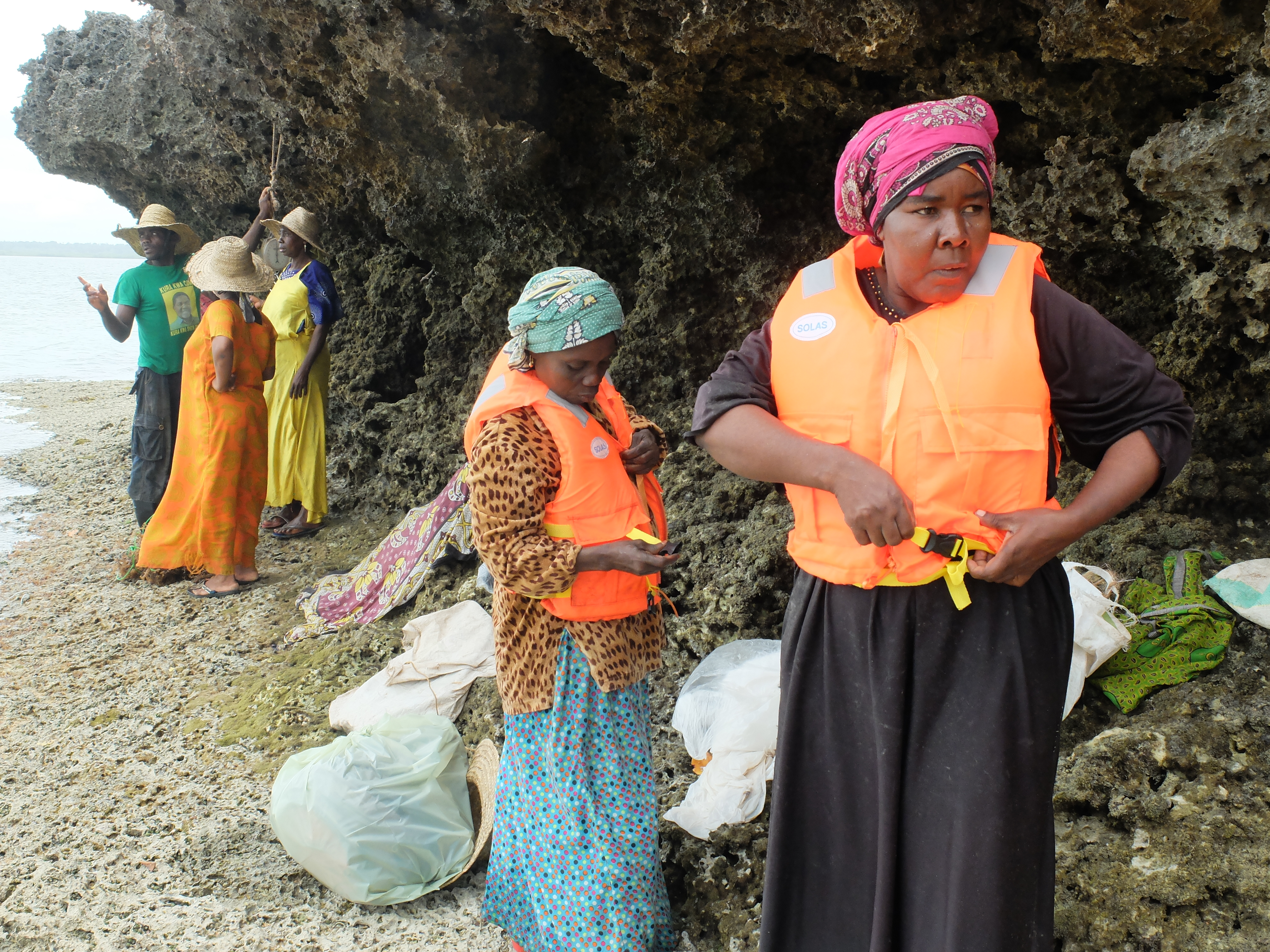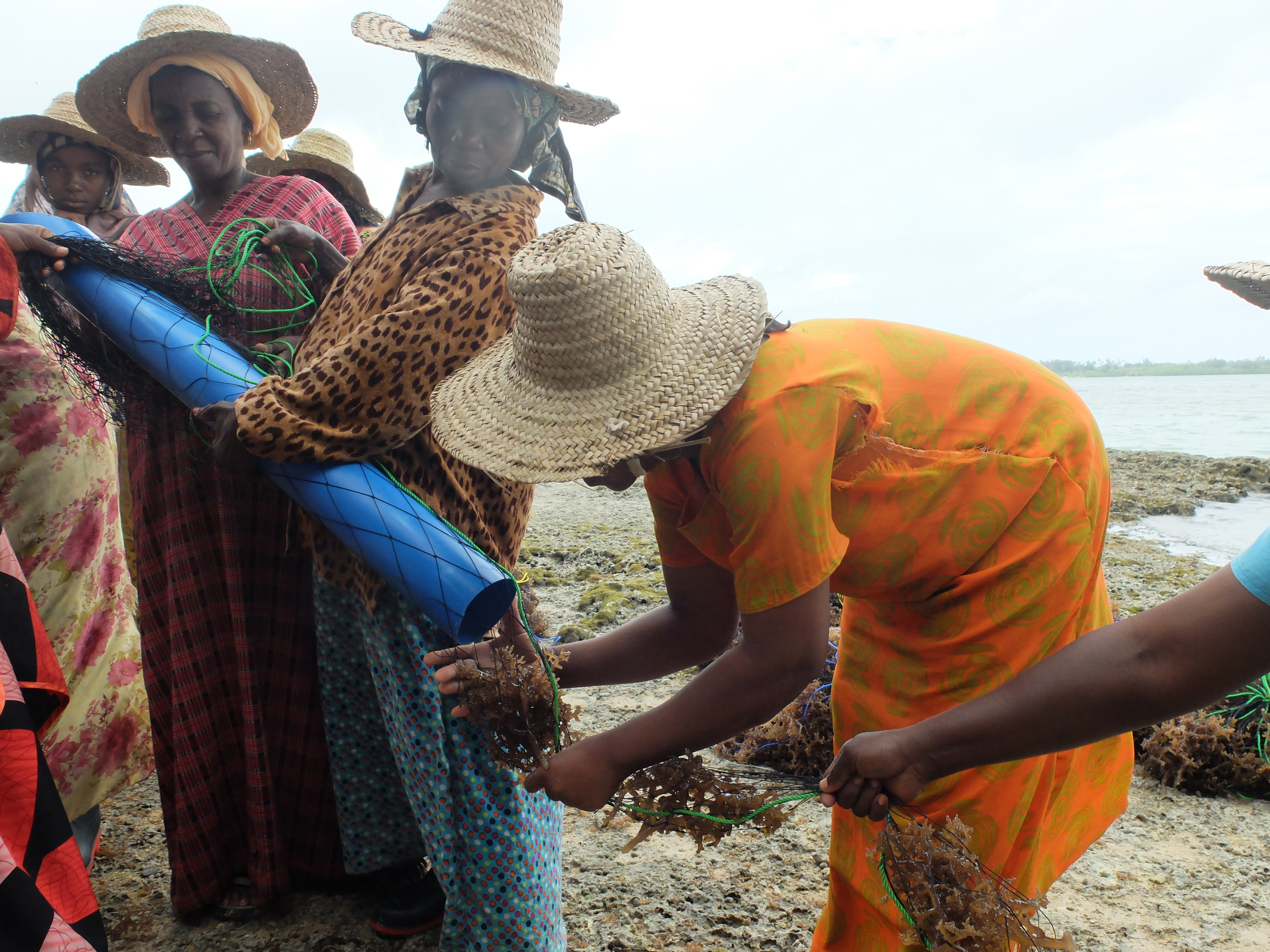


Sea PoWer facilitated the formation of two groups of women producers. It involved them in the design of the tubular net technology (e.g. testing net length and harvesting method) to ensure that the technology was adapted to their needs.
SeaPoWer developed the capacity of producers to:
- Construct tubular nets.
- Plant and monitor seaweed growth.
- Record keeping.
- Be safer at sea (e.g. wear life jackets on the boat).
- Handle boats with men.
- Construct basket traps to catch fish under the nets.
Sea PoWer also encouraged women to work together as a group, as several people are needed to seed and harvest the nets and supported their organisational capacity.
Availability of equipment and technical support. Sea PoWer supplied the materials to build the tubular nets and farm seaweed with them (fishing nets, ropes, PVC tubes, boat). This enabled to lift constraints related to accessing equipment, and perceived risk of engaging in this new form of production. Sea PoWer closely monitored their uptake of the technology.
Willingness to cooperate. Social collaboration was highlighted by women engaged with Sea PoWer as a critical enabling environment to promote knowledge sharing for adaptation.
Factors outside the technology itself, such as perceptions, engrained practices, are just as important as the technological design. For example, overcoming fear and taboo to go on the boat and learning safety at sea skills (e.g. wear a life jacket) goes hand-in-hand with using the technology (tubular nets) themselves.
The gains in productivity achieved from using the improved farming technology need to be offset by the time it takes to become familiar with it, especially for women who typically already bear the brunt of the labour burden in the household.